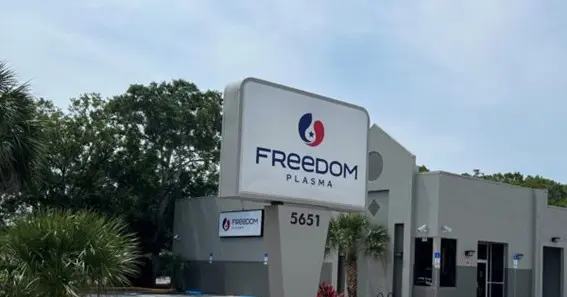Freedom Plasma is a network of donation centers dedicated to collecting plasma, a vital component used in producing life-saving therapies for patients with various medical conditions. By donating plasma, individuals contribute to the health and well-being of others while receiving compensation for their time and effort.
The Importance of Plasma Donation
Plasma, the liquid portion of blood, contains essential proteins and antibodies crucial for treating conditions like immune deficiencies, bleeding disorders, and other serious health issues. Donating plasma at centers like Freedom Plasma plays a pivotal role in ensuring a steady supply of these life-saving therapies.
Also Read N: AI Voice Generator: Creating Jessica Alba’s Voice for Your Projects
Donor Eligibility and Requirements
To donate plasma at Freedom Plasma, potential donors must meet specific criteria:
- Age: Between 18 and 65 years old.
- Weight: At least 110 pounds (50 kg).
- Health Status: Generally good health with no significant medical conditions.
- Documentation: Valid photo ID, proof of Social Security Number, and proof of current address.
A thorough medical history screening and physical examination are conducted to ensure donor and recipient safety.
Also Read P: Jordan Barrett’s Height: A Key Factor In His Modeling Success
The Donation Process
The plasma donation process at Freedom Plasma involves several steps:
- Registration: Verification of documentation and completion of a health questionnaire.
- Medical Screening: Assessment of vital signs and a brief physical examination.
- Plasmapheresis: Blood is drawn, plasma is separated, and red blood cells are returned to the donor’s body.
- Recovery: Short rest period with refreshments to rehydrate.
The initial donation may take up to two hours, while subsequent visits typically last about 90 minutes.
Compensation and Benefits
Freedom Plasma compensates donors for their time and contribution. While rates may vary by location and donor frequency, new donors can earn between $30 to $60 per donation. Additional bonuses may be available for referrals and military veterans and first responders.
Compensation is typically provided via a prepaid debit card, offering donors immediate access to their funds.
Safety and Health Considerations
Donating plasma is generally safe. Freedom Plasma adheres to strict protocols to ensure donor well-being, including:
- Sterile Equipment: Use of single-use, sterile collection kits.
- Qualified Staff: Trained professionals oversee the donation process.
- Health Monitoring: Regular health assessments for frequent donors.
Donors are advised to stay hydrated, maintain a healthy diet, and avoid alcohol before donating to minimize potential side effects.
FAQ
1. How often can I donate plasma at Freedom Plasma?
Donors can typically donate plasma twice within seven days, with at least one day between donations.
2. Is the donation process painful?
Most donors experience minimal discomfort, similar to a blood draw. Some may feel a slight pinch during needle insertion.
3. How should I prepare for my donation?
Before donating, ensure you’re well-hydrated, have eaten a healthy meal, and have all the necessary documentation. Avoid caffeine and alcohol.
4. What happens to the plasma I donate?
Donated plasma is processed into therapies for patients with immune deficiencies and clotting disorders.
5. Are there any risks associated with donating plasma?
While rare, some donors may experience lightheadedness or bruising at the needle site. Freedom Plasma’s trained staff monitor donors to ensure safety.
By donating at Freedom Plasma, individuals make a significant impact on the lives of patients in need, all while receiving compensation and contributing to their communities.
Enjoy this easy-to-read article ai-voice-generator-jessica-alba-voice-generator










